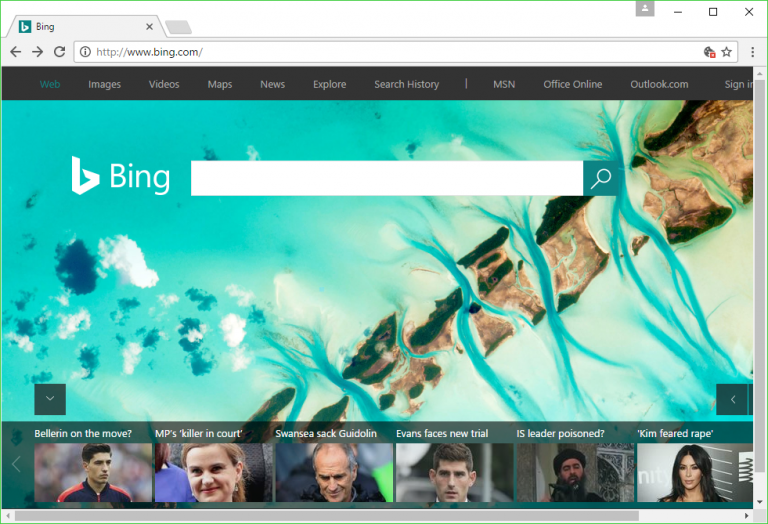

- FIREFOX VS UNGOOGLED CHROMIUM SOFTWARE
- FIREFOX VS UNGOOGLED CHROMIUM CODE
- FIREFOX VS UNGOOGLED CHROMIUM FREE
- FIREFOX VS UNGOOGLED CHROMIUM WINDOWS
But you don’t even need to take my word for it. Your IP address will remain exposed and various third parties can still track all of your activities. Autofill information: names, addresses, phone numbers, etc.Īnd as we will explain further below, using “private” or “incognito” browsing will not protect you.Cookies and trackers: these are placed on your browser by the sites you visit.Login credentials: usernames and passwords.Browsing history: all the websites you visit.Unless properly configured, most browsers contain lots of private information that can be exploited – or simply collected – by various third parties:
FIREFOX VS UNGOOGLED CHROMIUM FREE
We see this same privacy-abusing business model with search engines, email services, and even free mobile apps.

By collecting data through your browser, these companies can make money through their advertising partners with targeted ads. This is the case for Google Chrome, the largest and most popular browser. WARNING: Many browsers today are actually data collection tools for advertising companies. We have been reviewing, testing, and ranking browsers for the past six years and this guide contains the latest recommendations for 2022.ĭo you want a secure browser that truly keeps your data private? Well, you may be surprised by how much of your data is actually getting exposed. When Chromium is used as a flatpak, its metadata file ('/var/lib/flatpak/app/ secure browser that protects your privacy is a critical tool for staying safe online and keeping your data secure from third parties. The attacker could, with his exploit, gain write access on '/' and add / change / alter system files.
FIREFOX VS UNGOOGLED CHROMIUM CODE
(*): As an example, suppose an attacker exploits a vulnerability in Chromium giving him privileges escalation he writes an attractive web page, with malicious code inside when a user opens the page in its browser, the exploit is executed. Attacker would need to find and exploit two vulnerabilities (one in the browser, one in the sandbox) at the same time to make his attack. To be protected against vulnerabilities, best way is to use browsers in a sandbox (flatpak (*), snap, firejail). However, Firefox and Ungoogled-Chromium better respect users' privacy than Chrome. No browser is inherently secure in Firefox, Chrome or Chromium, vulnerabilities are often patched, just read the release notes to be convinced (in the latest Chrome / Chromium for desktop stable release, 4 vulnerabilities have been fixed, each classified as high). The fact that bugs can persist during 20 years simply shows that they are not tracked adequately: most often, developers prefer to add new features than to track bugs.įOSS is not inherently more secure it just protects user better against backdoors, tracking code, voluntarily let in the code but FOSS is not inherently better against bugs or vulnerabilities. Before this action, the list of Most Annoying Bugs for a final version still contained several tens of bugs.

Years ago, LibreOffice people stopped the development and decided to track bugs with automated tools. More generally, remaining bugs depend on the effort made to track them. I am aware of a lot of bugs (and principle defects) in a lot of encryption programs.īugs are difficult to track particularly if they come from a defective analysis / needs specifiation based on complex defective maths. Though I sometimes use Windows, MacOS, iOS.
FIREFOX VS UNGOOGLED CHROMIUM WINDOWS
I prefer Linux to Windows or MacOS I prefer Firefox, Chromium or Ungoogled-chromium to Google Chrome, Opera, Vivaldi, Microsoft Edge, Apple Safari.
FIREFOX VS UNGOOGLED CHROMIUM SOFTWARE
PS: Nothing against Vivaldi, it is just a general principle when OpenSource software exists, I prefer to use it than its undisclosed source equivalent. And, among these bugs, some are vulnerabilities. OpenSource and undisclosed source software have and will always have bugs (it is a proverb: there is always one more bug). This is not related to bugs and vulnerabilities. It is the principle of OpenSource: you may be more confident about the content with undisclosed source software you don't know at all what is inside the software you use: there could be anything, including backdoors (Richard Stallman has identified some eleven ones in Windows, and this even without having the code). It gives them more confidence, since people who compile know they used the original code, not an altered one. Some even compile the code! (your favorite distro for Firefox and Chromium, for example, or the authors of ungoogled-chromium). Even if you don't review the source code yourself, some people do it (or use software tools to dot it) and they verify that the code does not contain any malicious part, any backdoor.


 0 kommentar(er)
0 kommentar(er)
